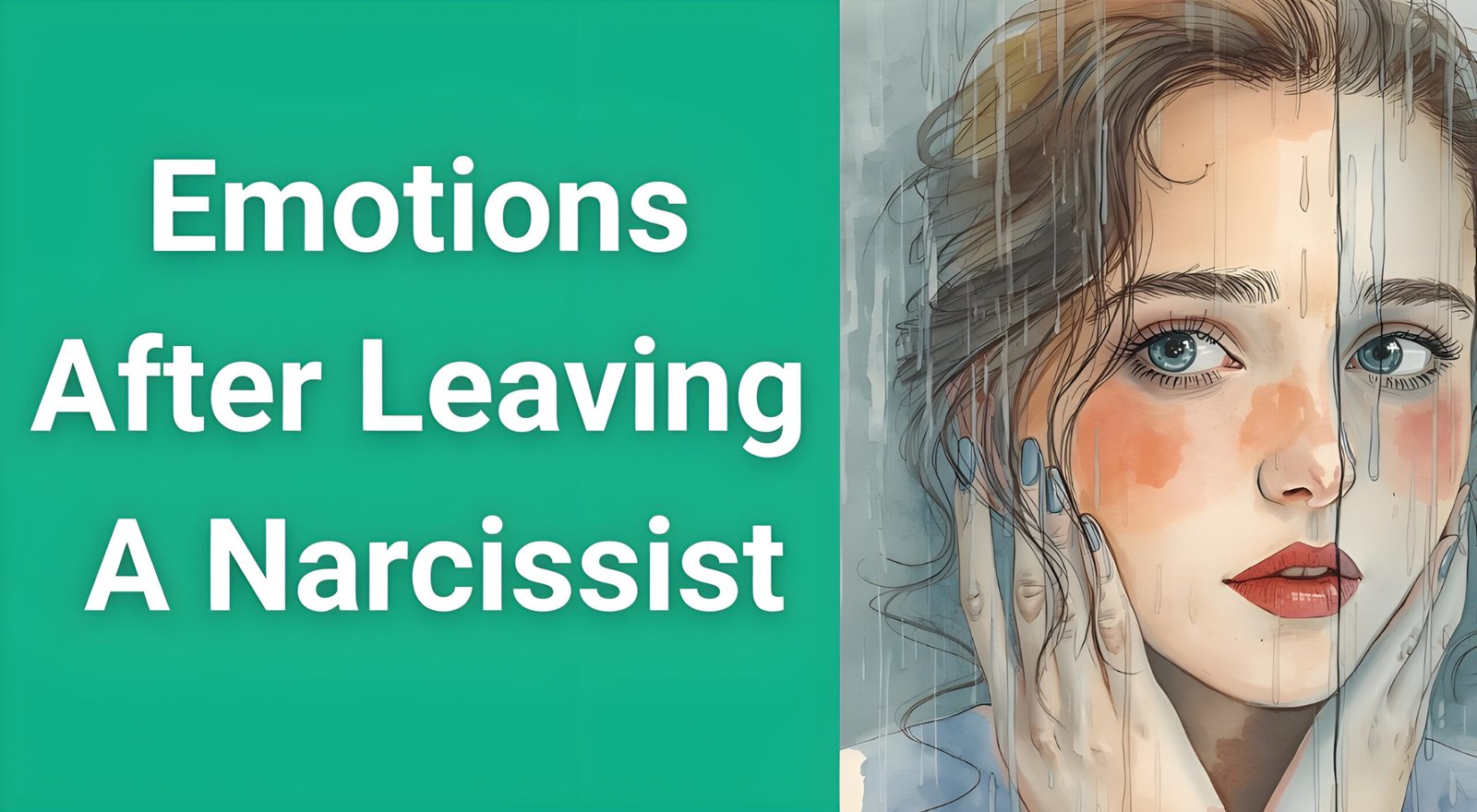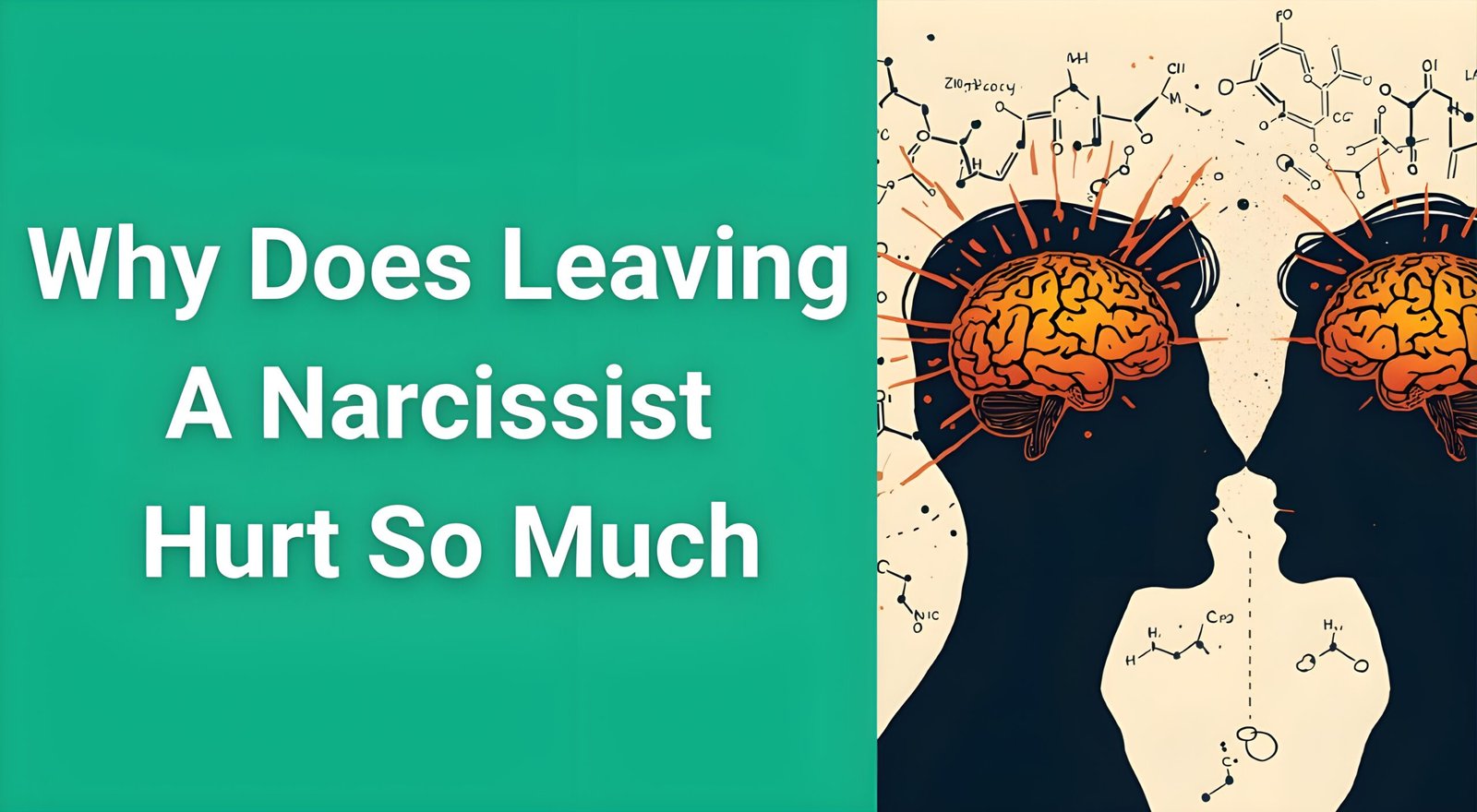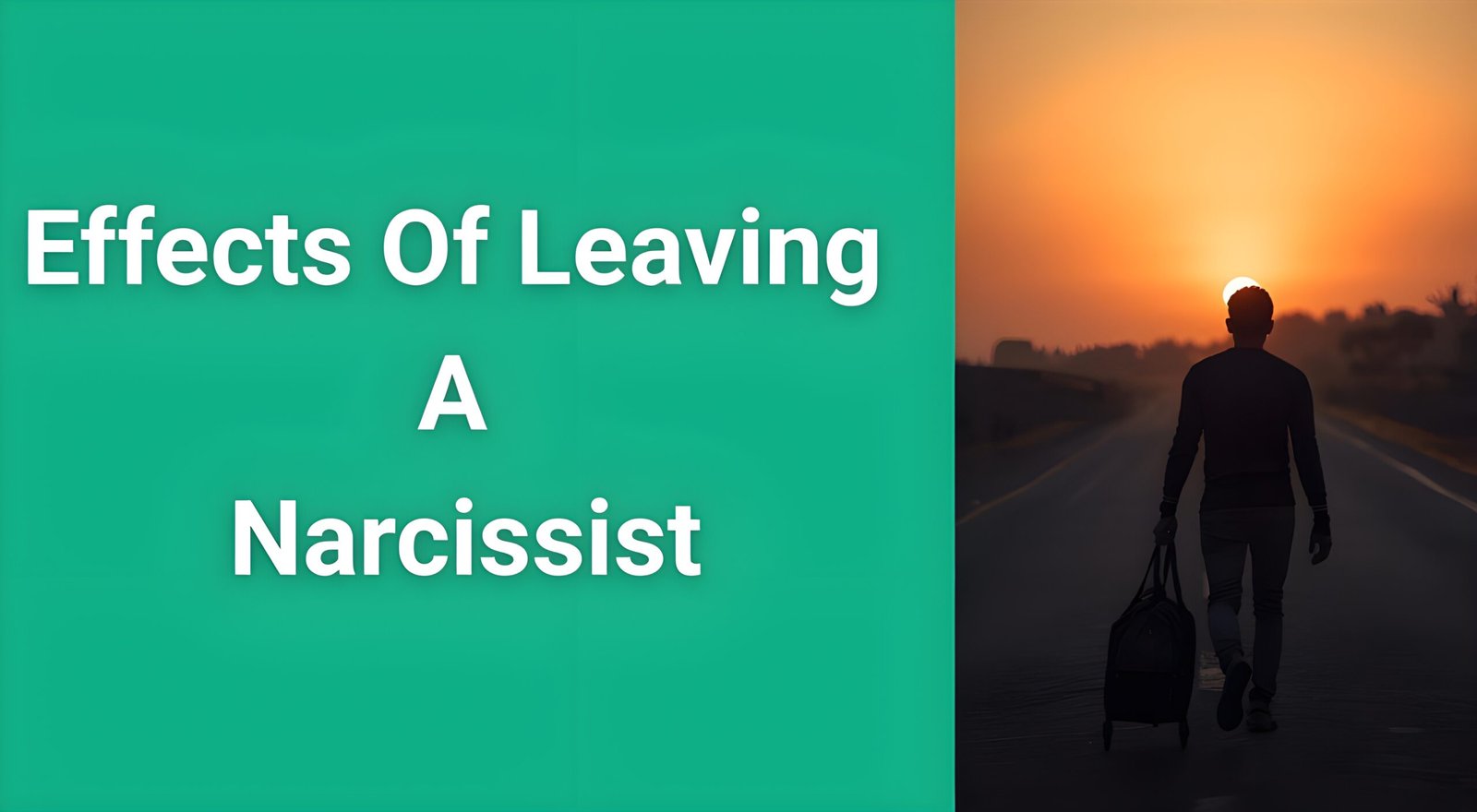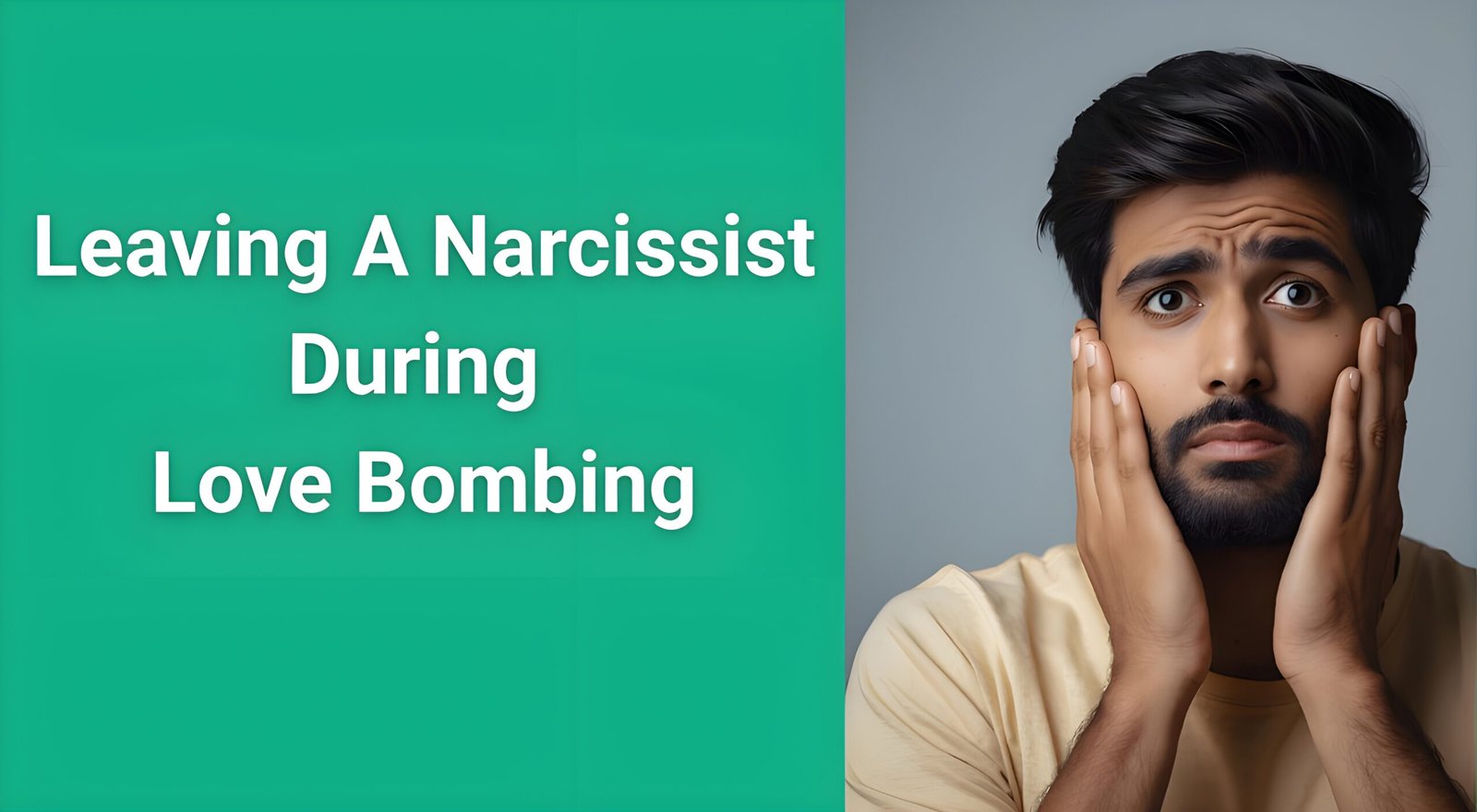The emotions after leaving a narcissist can feel like an overwhelming tsunami that hits you when you least expect it. One moment you’re celebrating your newfound freedom, and the next, you’re curled up on your bathroom floor wondering if you’ve made the biggest mistake of your life.
- Understanding the Emotional Aftershock: Why You Feel Worse Before You Feel Better
- The 9 Stages of Emotions After Leaving a Narcissist
- The Physical Impact: How Your Body Processes These Emotions
- Why Traditional Therapy Might Not Be Enough
- Breaking Free From Trauma Bonding: The Science Behind Your Attachment
- Navigating Relationships While Healing: When You Can’t Leave Yet
- Building Your Recovery Roadmap: From Survival to Thriving
- Red Flags vs. Green Flags: Rebuilding Your Trust Compass
- Frequently Asked Questions About Emotions After Leaving a Narcissist
- Finding Hope: Your Emotions Are Temporary, Your Strength Is Permanent
If you’re reading this, chances are you’re experiencing a bewildering mix of feelings that don’t make sense to anyone around you—including yourself. Your friends might say “You should be happy you’re free!” while you’re secretly battling guilt, fear, and an inexplicable longing for the very person who hurt you.
Here’s the truth no one prepares you for: the emotional aftermath of leaving a narcissistic relationship is often more intense than the relationship itself. This phenomenon, known as “aftershock,” affects nearly every survivor of narcissistic abuse, and understanding these stages can be the difference between drowning in confusion and finding your way to solid ground.
Understanding the Emotional Aftershock: Why You Feel Worse Before You Feel Better
Before we dive into the nine stages of emotions after leaving a narcissist, it’s crucial to understand why this emotional rollercoaster happens in the first place. The answer lies in the neurobiological impact of narcissistic abuse on your brain and nervous system.
During your relationship with a narcissist, your brain became hijacked by a cycle of intermittent reinforcement—periods of cruelty followed by unexpected kindness. This creates the same addictive neural pathways found in gambling addiction and substance abuse. When you leave, your brain experiences withdrawal symptoms that can be as intense as those experienced by people detoxing from drugs.
Dr. Patrick Carnes, a leading expert in trauma bonding, explains that the biochemical addiction created by narcissistic abuse produces measurable changes in brain chemistry. Your body has become dependent on the stress hormones (cortisol and adrenaline) and bonding chemicals (oxytocin and dopamine) that were constantly triggered during the relationship’s chaos.
This is why the emotions after leaving a narcissist feel so physically and emotionally intense. You’re not weak, crazy, or making a mistake—you’re experiencing neurological withdrawal from a traumatic bond.
The 9 Stages of Emotions After Leaving a Narcissist
Understanding these stages doesn’t mean you’ll experience them in perfect order or that every stage will apply to you. Recovery is not linear, and you might cycle through certain stages multiple times. However, recognizing these patterns can help validate your experience and remind you that what you’re feeling is both normal and temporary.
Stage 1: Relief Mixed with Terror
The Feeling: “I’m free, but I’m terrified of what comes next.”
The initial emotions after leaving a narcissist often begin with a complex mixture of relief and terror. You might experience moments of euphoria, feeling like you can finally breathe again, followed immediately by panic attacks about your future.
This stage is characterized by:
- Physical sensations of relief (deeper breathing, relaxed shoulders)
- Simultaneous anxiety about practical matters (finances, housing, children)
- Second-guessing your decision multiple times per day
- Feeling simultaneously strong and completely vulnerable
Many survivors describe this as feeling like they’ve jumped out of a burning building—grateful to be alive but suddenly aware they’re falling through the air with no safety net.
What’s Really Happening: Your nervous system is coming down from chronic hypervigilance while simultaneously trying to process the magnitude of change in your life. The relief is real, but so is the terror of the unknown.
Stage 2: The Grief Tsunami
The Feeling: “I’m mourning someone who never really existed.”
One of the most confusing emotions after leaving a narcissist is intense grief. You find yourself crying for the person who hurt you, missing the relationship that nearly destroyed you. This stage often hits hardest a few weeks after leaving, once the initial adrenaline wears off.
This grief is particularly complex because you’re mourning:
- The person you thought they were during the love-bombing phase
- The future you imagined together (even if it was based on lies)
- Parts of yourself that got lost in the relationship
- The innocence and trust you had before experiencing this abuse
- The time and energy you invested in something that wasn’t real
What Makes This Stage Particularly Painful: Unlike typical breakup grief, you’re not mourning a real relationship—you’re grieving an illusion. The person you fell in love with was a carefully constructed mask designed to hook you emotionally.
What’s Really Happening: Your brain is processing the cognitive dissonance between the love-bombing memories and the abusive reality. This neurological confusion creates genuine grief responses as your mind tries to make sense of what was real versus what was manipulation.
Stage 3: Guilt and Self-Blame Storm
The Feeling: “Maybe it really was all my fault.”
During this stage of emotions after leaving a narcissist, you might find yourself taking responsibility for everything that went wrong in the relationship. The narcissist’s gaslighting continues to echo in your mind long after they’re gone, making you question your own perceptions and decisions.
Common thoughts during this stage include:
- “If I had just tried harder, maybe they would have changed”
- “I should have been more understanding of their childhood trauma”
- “Maybe I really am too sensitive/dramatic/needy”
- “I abandoned them when they needed me most”
- “What if they were telling the truth about my flaws?”
The Guilt Trap: Many survivors get stuck in this stage because guilt feels more manageable than accepting the reality that someone they loved deliberately hurt them. Taking blame feels like having control, even if it’s misplaced.
What’s Really Happening: Your brain is trying to make sense of the relationship by finding patterns and assigning responsibility. Because narcissists are expert blame-shifters, your mind has been trained to look inward for fault rather than recognizing external manipulation.
Stage 4: Rage and Righteous Anger
The Feeling: “How dare they do this to me!”
As the fog of gaslighting begins to lift, many survivors experience intense anger during this stage of emotions after leaving a narcissist. This rage can be directed at:
- The narcissist for their deliberate cruelty and manipulation
- Yourself for staying as long as you did or for not seeing the signs sooner
- Friends and family who didn’t understand or support your situation
- A system that seems to protect abusers while victims struggle to be believed
Types of Anger You Might Experience:
- Hot rage: Explosive, immediate anger at specific memories or triggers
- Cold rage: A steady, burning resentment that fuels your determination to rebuild
- Displaced anger: Finding yourself snapping at innocent people or situations
- Righteous anger: A healthy response to injustice that can fuel positive action
Why This Stage is Actually Healthy: After months or years of having your reality denied and your feelings minimized, anger is often your psyche’s way of reclaiming your truth and establishing boundaries.
What’s Really Happening: Your nervous system is moving from freeze/fawn responses (which helped you survive the relationship) back toward fight/flight responses (which are necessary for setting boundaries and protecting yourself).
Stage 5: Emotional Numbness and Disconnection
The Feeling: “I feel nothing. Am I broken forever?”
Many survivors are surprised when intense emotions are suddenly replaced by complete numbness. You might find yourself unable to cry, laugh, or feel much of anything. This emotional flatline can be more disturbing than the previous intense feelings because it makes you question whether you’ll ever feel normal again.
During this stage, you might experience:
- Inability to feel joy or excitement about things you used to love
- Feeling disconnected from your own body and emotions
- Going through the motions of daily life without really being present
- Wondering if you’ve lost the ability to love or be loved again
- Feeling like you’re watching your life from the outside
Why Numbness Happens: Emotional numbing is actually a protective mechanism. After experiencing intense emotional highs and lows for an extended period, your nervous system essentially puts itself into “safe mode” to prevent further overwhelm.
What’s Really Happening: Your brain is conserving energy and protecting itself from further trauma while it processes and integrates the experiences you’ve been through. This is a necessary part of healing, not a permanent state.
Stage 6: Identity Crisis and Lost Sense of Self
The Feeling: “Who am I without them? I don’t recognize myself anymore.”
One of the most profound emotions after leaving a narcissist is a complete identity crisis. Narcissistic abuse systematically erodes your sense of self, and once you leave, you might realize you can’t remember who you were before the relationship—or who you want to be now.
This stage involves questioning:
- Your basic personality traits and preferences
- Your ability to make good decisions
- Your worth as a person and a partner
- Your capacity to trust your own judgment
- Your goals, dreams, and aspirations
The Identity Erosion Process: Narcissists deliberately target and undermine their victim’s sense of self through constant criticism, control, and manipulation. Over time, you likely adapted so much to their demands that you lost touch with your authentic self.
Signs of Identity Loss:
- Can’t remember what you enjoyed doing before the relationship
- Feel uncomfortable making decisions without someone else’s input
- Don’t know your own opinions on basic topics
- Feel like you need permission to exist or express yourself
- Can’t distinguish between their voice and your inner voice
What’s Really Happening: Your brain is beginning the process of individuation—separating your thoughts, feelings, and identity from the narcissist’s influence. This is necessary but disorienting work that takes time.
Stage 7: Fear of Future Relationships and Trust
The Feeling: “How will I ever trust anyone again? What if I choose another narcissist?”
As you begin to process your experience, a new fear emerges: the terror of repeating the same pattern. This stage of emotions after leaving a narcissist involves intense anxiety about your ability to recognize red flags, set boundaries, and choose healthy partners in the future.
Common fears include:
- “What if I’m attracted to narcissists and can’t help myself?”
- “What if I can never trust my own judgment again?”
- “What if I’m too damaged for a healthy relationship?”
- “What if everyone I meet sees me as an easy target?”
- “What if I’ve lost the ability to recognize genuine love?”
The Trust Rebuilding Challenge: Trust isn’t just about other people—it’s about learning to trust yourself again. After having your perceptions constantly challenged and invalidated, rebuilding self-trust is one of the most crucial aspects of recovery.
What’s Really Happening: Your brain is trying to protect you from future harm by hyperanalyzing every interaction and potential relationship. While exhausting, this hypervigilance is actually an adaptive response that will naturally decrease as you heal.
Stage 8: Slow Recognition of Abuse Patterns
The Feeling: “Oh my god, that wasn’t normal. None of it was normal.”
This stage often involves a series of “lightbulb moments” as you begin to recognize the extent of the manipulation and abuse you endured. You might read articles about narcissistic abuse and feel shocked by how many tactics you experienced.
Common Realizations:
- The love-bombing phase was manipulation, not genuine affection
- Their apologies were designed to keep you hooked, not show remorse
- Your reactions to their behavior were normal responses to abnormal treatment
- Many of your “relationship problems” were actually their abuse tactics
- You weren’t “crazy” or “too sensitive”—you were being deliberately confused
Why This Recognition Takes Time: During the relationship, you were likely in survival mode, focused on managing crises and avoiding conflict rather than analyzing patterns. It’s only in safety that your brain can process what really happened.
The Validation Relief: Many survivors describe this stage as simultaneously devastating and relieving. While it’s painful to accept the extent of the abuse, it’s also validating to finally understand that your suffering was real and justified.
What’s Really Happening: Your cognitive functions are coming back online after being suppressed by chronic stress and trauma. You’re developing the emotional distance necessary to see the relationship objectively rather than through the lens of trauma bonding.
Stage 9: Cautious Hope and Gradual Empowerment
The Feeling: “Maybe I really can build a better life. Maybe I’m stronger than I thought.”
The final stage of emotions after leaving a narcissist involves the gradual return of hope, self-compassion, and personal empowerment. You begin to see glimpses of who you were before the relationship and who you might become.
Signs of This Stage:
- Moments of genuine joy and excitement about your future
- Increased confidence in your decision-making abilities
- Growing pride in your strength and survival skills
- Beginning to set boundaries with confidence
- Feeling protective of yourself rather than just angry at them
- Starting to envision healthy relationships and life goals
The Empowerment Shift: Instead of feeling like a victim of circumstances, you begin to recognize yourself as a survivor who made the brave choice to leave. This shift in perspective is crucial for long-term healing.
What’s Really Happening: Your nervous system is stabilizing, your identity is reforming, and your brain is creating new neural pathways based on safety and self-care rather than survival and people-pleasing.
The Physical Impact: How Your Body Processes These Emotions
Understanding the emotions after leaving a narcissist also requires recognizing how trauma affects your physical body. Many survivors experience:
Neurological Symptoms:
- Brain fog and memory issues
- Difficulty concentrating or making decisions
- Hypervigilance or constantly scanning for threats
- Dissociation or feeling disconnected from your body
Physical Symptoms:
- Chronic fatigue or insomnia
- Digestive issues and appetite changes
- Muscle tension, headaches, or unexplained pain
- Immune system suppression leading to frequent illness
Hormonal Disruption:
- Disrupted cortisol patterns affecting sleep and mood
- Thyroid dysfunction impacting energy and metabolism
- Reproductive hormone imbalances
These physical symptoms aren’t separate from your emotional healing—they’re part of the same process. Your body is literally rewiring itself to function outside of chronic stress mode.
Why Traditional Therapy Might Not Be Enough
While therapy is crucial for healing from narcissistic abuse, many survivors find that traditional talk therapy alone doesn’t address the full scope of their recovery needs. The emotions after leaving a narcissist are rooted in neurobiological changes that require specialized approaches.
What Makes Narcissistic Abuse Different:
- It involves complex trauma that affects multiple brain systems
- Traditional grief counseling may not address trauma bonding
- The abuse often involves such subtle manipulation that even the survivor questions their experience
- Recovery involves rebuilding identity, not just processing loss
Specialized Support You Might Need:
- Trauma-informed therapy (EMDR, somatic experiencing, or neurofeedback)
- Support groups with other narcissistic abuse survivors
- Educational resources about manipulation tactics and recovery
- Practical guidance for rebuilding your life and relationships
If you’re struggling to make sense of your emotions after leaving a narcissist, consider getting a professional analysis of your specific situation. Understanding exactly what you’ve been through and why you’re feeling this way can accelerate your healing process significantly.
Breaking Free From Trauma Bonding: The Science Behind Your Attachment
One of the most confusing aspects of emotions after leaving a narcissist is the continued attachment you feel to someone who hurt you. This isn’t weakness—it’s neurobiological conditioning known as trauma bonding.
How Trauma Bonds Form:
- Intermittent Reinforcement: Unpredictable cycles of punishment and reward create powerful psychological addiction
- Stress Hormone Addiction: Your brain becomes dependent on the cortisol and adrenaline cycles
- Oxytocin Manipulation: Moments of tenderness trigger bonding hormones, creating false intimacy
- Dopamine Hijacking: The unpredictability triggers the same reward pathways involved in gambling addiction
Breaking the Trauma Bond: The pull toward your narcissistic ex isn’t about missing them—it’s about your brain missing the neurochemical cocktail it became addicted to. Understanding this can help you have compassion for yourself when you experience confusing longings or urges to contact them.
Recovery involves rewiring these neural pathways through consistent new experiences of safety, self-compassion, and healthy relationships. This process typically takes 30-90 days of no contact to begin seeing significant changes, though complete healing can take much longer.
If you’re struggling with the obsessive thoughts and compulsive urges that characterize trauma bonding, know that specialized workbooks and recovery systems can provide day-by-day guidance for breaking these patterns. The key is understanding that this is a neurological process, not a character flaw.
Navigating Relationships While Healing: When You Can’t Leave Yet
Not everyone experiencing emotions after leaving a narcissist has actually left yet. You might be planning your exit, building resources, or dealing with circumstances that make immediate departure impossible—such as shared custody, financial dependence, or lack of safe housing options.
If you’re in this situation, your emotional experience might include:
- Intense frustration at being trapped
- Grief for your current self and situation
- Fear about the future while managing present survival
- Guilt about not being “strong enough” to leave immediately
- Anxiety about your children or other dependents
Survival Strategies While Planning Your Exit:
- Document incidents without putting yourself at risk
- Build a private support network the narcissist doesn’t know about
- Develop safety plans for different scenarios
- Work on internal healing even while still in the relationship
- Create small pockets of autonomy where possible
Remember, staying in an abusive relationship temporarily while you plan a safe exit isn’t weakness—it’s strategic survival. Many survivors need months or even years to safely extricate themselves, especially when children or significant financial entanglement are involved.
Building Your Recovery Roadmap: From Survival to Thriving
Moving through the emotions after leaving a narcissist requires a structured approach to healing. Recovery happens in phases, and understanding these phases can help you be patient with yourself and make informed decisions about your healing journey.
Phase 1: Stabilization (0-6 months after leaving)
- Focus on basic safety and survival needs
- Process acute trauma symptoms
- Begin no-contact or limited contact protocols
- Address immediate practical concerns
Phase 2: Processing (6-18 months after leaving)
- Work through the emotional stages described above
- Begin understanding manipulation tactics and their effects
- Start rebuilding sense of self and identity
- Process grief, anger, and trauma responses
Phase 3: Integration (18 months – 3 years after leaving)
- Develop healthy relationship patterns
- Establish strong boundaries and self-advocacy skills
- Pursue goals and interests that were suppressed during the relationship
- Help others going through similar experiences
Phase 4: Post-Traumatic Growth (3+ years after leaving)
- Experience life as better than it was before the abusive relationship
- Develop deep self-compassion and emotional intelligence
- Create meaningful relationships based on mutual respect
- Use your experience to contribute to healing for others
Red Flags vs. Green Flags: Rebuilding Your Trust Compass
One of the long-term challenges following the emotions after leaving a narcissist is learning to trust your judgment in relationships again. This involves developing a more sophisticated understanding of healthy vs. unhealthy relationship dynamics.
Red Flags to Watch For:
- Love-bombing: Excessive attention, gifts, or declarations of love very early in the relationship
- Boundary testing: Pushing against your “no” in small ways to see what they can get away with
- Isolation tactics: Subtle discouragement of your friendships, interests, or independence
- Gaslighting: Making you question your memory, perceptions, or sanity
- Entitlement: Acting like they deserve special treatment or exemptions from normal relationship rules
Green Flags to Cultivate:
- Respect for your “no” without argument or negotiation
- Consistency between their words and actions over time
- Encouragement of your friendships, goals, and personal growth
- Ability to take responsibility for mistakes without deflecting or blame-shifting
- Patience with your healing process and trauma responses
Learning to recognize these patterns takes time and practice. Be patient with yourself as you rebuild your trust compass—it’s normal for this process to take years, not months.
Frequently Asked Questions About Emotions After Leaving a Narcissist
Q: How long do these intense emotions last after leaving a narcissist?
A: The acute emotional phase typically lasts 3-12 months, though individual factors like the length of the relationship, severity of abuse, and availability of support can significantly impact the timeline. Many survivors report feeling significantly better after 6 months of no contact, but complete emotional healing often takes 2-5 years.
Q: Is it normal to miss someone who abused me?
A: Absolutely. Missing your abuser is one of the most common and confusing emotions after leaving a narcissist. This happens because of trauma bonding—your brain became neurologically addicted to the relationship’s intensity. You’re not missing the abuse; you’re missing the neurochemical highs that came with the intermittent reinforcement.
Q: Why do I feel worse now than when I was in the relationship?
A: This is called “aftershock,” and it’s incredibly common. During the relationship, you were in survival mode, focused on managing immediate crises. Now that you’re safe, your nervous system can finally process what happened. It’s like how you don’t feel pain during an emergency but notice injuries afterward.
Q: Will I ever be able to trust my judgment in relationships again?
A: Yes, but rebuilding trust in yourself takes time and intention. Many survivors find they actually develop better relationship intuition than people who haven’t experienced narcissistic abuse, because they’ve learned to recognize subtle manipulation tactics that others might miss.
Q: How do I know if I’m healing or just avoiding my emotions?
A: Healing involves feeling your emotions while building coping skills and support systems. Avoidance involves numbing emotions through substances, workaholism, or other compulsive behaviors. Healthy healing includes periods of rest and self-protection, but not permanent emotional shutdown.
Q: Should I tell people what really happened in my relationship?
A: This is a personal decision that depends on your safety and the person you’re telling. Many survivors find it helpful to have at least one or two people who understand their experience fully. However, be careful about sharing details with people who might not understand narcissistic abuse or who could use the information against you.
Finding Hope: Your Emotions Are Temporary, Your Strength Is Permanent
If you’re currently drowning in the intense emotions after leaving a narcissist, it might be hard to believe that what you’re experiencing is temporary. But every survivor who has walked this path before you wants you to know: these overwhelming feelings will pass, and you will find yourself again.
The emotions you’re experiencing aren’t signs of weakness—they’re evidence of your humanity, your capacity for love, and ultimately, your strength. The fact that you’re reading this article means you’re already taking steps toward understanding and healing, which is more than many people trapped in similar situations are able to do.
Your journey through these emotional stages isn’t a sign that you’re broken or that leaving was a mistake. It’s proof that you’re a normal person processing an abnormal experience. Every wave of grief, anger, confusion, or fear is your psyche working to integrate this experience and move you toward wholeness.
The narcissist in your life counted on your confusion, your self-doubt, and your emotional overwhelm to keep you trapped. By seeking understanding, reaching out for support, and choosing to prioritize your healing, you’re reclaiming the power they tried to take from you.
Remember, recovering from narcissistic abuse isn’t about forgetting what happened or pretending it didn’t affect you. It’s about transforming your pain into wisdom, your trauma into strength, and your survival into a foundation for thriving.
You didn’t just leave a toxic relationship—you chose yourself. And that choice, despite how difficult these emotions might be right now, was the beginning of reclaiming your life. The person you’re becoming on the other side of this healing journey will be stronger, wiser, and more authentically you than ever before.
Your emotions after leaving a narcissist are not your enemy—they’re the raw materials of your recovery. Trust the process, be gentle with yourself, and remember that seeking help isn’t a sign of weakness; it’s a sign of wisdom.
Your healing matters. Your experience is valid. Your future is bright.






